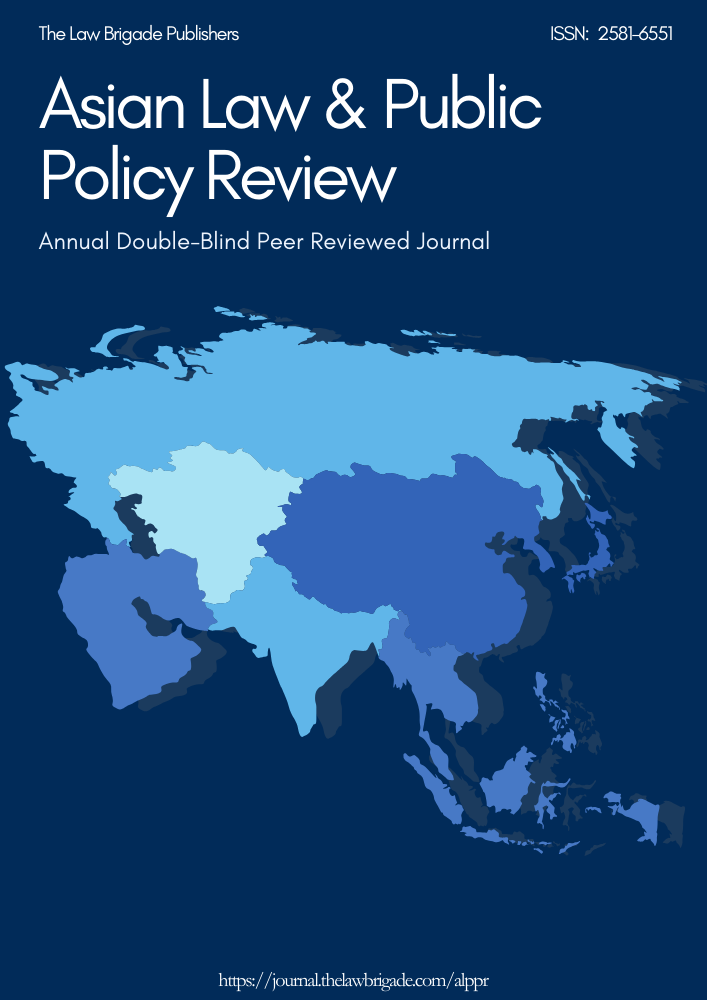Recourse of an Arbitral Award in Bangladesh: Dissection Under The UNCITRAL, Foreign Laws and Precedents
Keywords:
Arbitral Award, New York Convention, Bangladesh, Arbitration Act, English Law of ArbitrationAbstract
It is irrefutable that the arbitration process is controlled by arbitration seat law. Therefore, in the case of international commercial arbitration having the arbitration place in Bangladesh, and in the case of domestic arbitration that means where both parties are Bangladeshi, sections 42 and 43 of the Chapter VIII Arbitration Act 2001 lays down the rules in which applications can be lodged to set aside arbitral awards. Moreover, if the award contains some mistakes, the tribunal can correct an award by removing any clerical mistakes or errors under section 40 of the Arbitration Act 2001. This study was an attempt in the light of court rulings, article 33 and 34 of the UNCITRAL Model Law, 1985 and article 36 of the New York Convention, 1958 to critically examine section 40, 42 and 43 of the Arbitration Act 2001 of Bangladesh.
Downloads
References
1. Singh, A., 2002. Law of Arbitration and Conciliation. Eastern Book Company.
2. Torremans, P. and Fawcett, J., 2017. Cheshire, North & Fawcett: private international law. Oxford
University Press (OUP).
3. Markanda, P.C., 2009. Law relating to arbitration and conciliation commentary on the arbitration
and conciliation Act, 1996. Wadhwa: Lexis Nexis Butterworth.
4. Malhotra, O.P. and Malhotra, I., 2006. The Law and Practice of Arbitration and Conciliation: The
Arbitration and Conciliation Act, 1996. LexisNexis Butterworths.
Case Laws:
1. Renusagar Power Co. Ltd. v. General Electric Company, 1984, 4 SCC 679
2. AIR 1999 SC 2102.
3. AIR 2003 SC 2629
4. Union of India v. Ratan Singh, AIR RAJ, 1999, 117.
5. AIR 2001 5 SCC 691.
6. Astro Nusantara International BV v PT Ayunda Prima Mitra [2012] SGHC 212
7. Balika Devi v KedarNath Puri AIR 1956 All 377
8. Chandra Nath v Suresh Jhalani (1999) 8 SCC 628.
ACT and Laws:
1. The UNCITRAL Model Law,1985
2. The New York Convention, 1958
3. The UNCITRAL Model Rules, 2010
4. European Convention on International Commercial Arbitration (Geneva, 1961)
5. The Arbitration Act, 2001 of Bangladesh
6. The Arbitration and Conciliation Act, 1996 of India
7. The Arbitration and Conciliation Act, (2001 amendment) of India
8. The Arbitration Act, 1940
9. The English Arbitration Act, 1996
Downloads
Published
Issue
Section
License

This work is licensed under a Creative Commons Attribution-NonCommercial-ShareAlike 4.0 International License.
License Terms
Ownership and Licensing:
Authors of research papers submitted to any journal published by The Law Brigade Publishers retain the copyright of their work while granting the journal specific rights. Authors maintain ownership of the copyright and grant the journal the right of first publication. Simultaneously, authors agree to license their research papers under the Creative Commons Attribution-ShareAlike 4.0 International (CC BY-SA 4.0) License.
License Permissions:
Under the CC BY-SA 4.0 License, others are permitted to share and adapt the work, even for commercial purposes, provided that appropriate attribution is given to the authors, and acknowledgment is made of the initial publication by The Law Brigade Publishers. This license encourages the broad dissemination and reuse of research papers while ensuring that the original work is properly credited.
Additional Distribution Arrangements:
Authors are free to enter into separate, non-exclusive contractual arrangements for distributing the published version of the work (e.g., posting it to institutional repositories or publishing it in books), provided that the original publication by The Law Brigade Publishers is acknowledged.
Online Posting:
Authors are encouraged to share their work online (e.g., in institutional repositories or on personal websites) both prior to submission and after publication. This practice can facilitate productive exchanges and increase the visibility and citation of the work.
Responsibility and Liability:
Authors are responsible for ensuring that their submitted research papers do not infringe on the copyright, privacy, or other rights of third parties. The Law Brigade Publishers disclaims any liability for any copyright infringement or violation of third-party rights within the submitted research papers.


